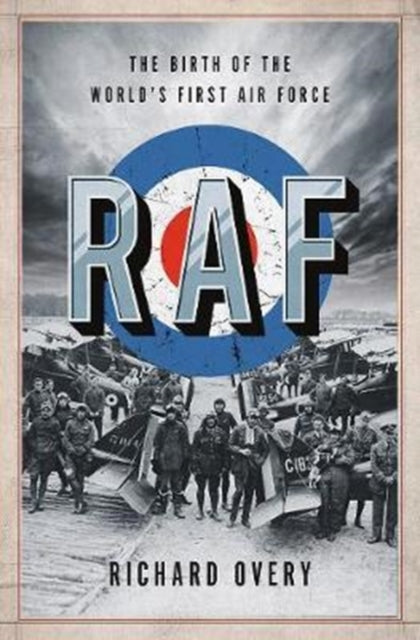RAF: The Birth of the World's First Air Force
Usually shipped within 24 hours
UK deliveries from £5.95
Delivery & Returns
Delivery & Returns
We use the Royal Mail, DHL Express or UPS for our customers. For UK addresses, deliveries under 10kg are a standard £4.95 via Royal Mail Tracked 48 Service. For orders over 10kg and overseas customers, postage is calculated for you at checkout once you have entered your postal address. This price, does not include any potential custom charges that may apply, depending on the product or destination, as every country has very different import duties / taxes. Online exclusive products (such as trainers) will be delivered to you directly from the printer, separate from other items in your order, but your postage fee covers ALL items in your order.
If you are unhappy with your purchase, please email shop@tankmuseum.org within fourteen (14) working days of receiving your goods, and return it to us at the address below, in its original condition, unopened (with any seals and shrink-wrap intact) and we will issue you a full refund or replace it. Goods must be returned at your own cost. If the item is faulty, you do not need to return it, we will send you a replacement free of charge.
Description
Description
By Richard Ph.D. Overy
Hardback
The birth of the Royal Air Force during World War I marked a pivotal moment in modern military and political history. With Europe's western front frozen in a bloody stalemate of trench warfare, both sides sought some means of directly attacking enemy resources and morale. The new technologies of air power were used at first for reconnaissance of enemy positions for artillery strikes.
By 1917 German bombers had begun raids on British cities, including an attack on London that killed hundreds, with eighteen schoolchildren among the casualties. Public outrage in Britain sparked a call for air defense and spurred political support for an independent air ministry. Prime Minister David Lloyd George and his minister of munitions, Winston Churchill, led the debates over how to shape Britain's air power during the war.
The immediate path to an independent RAF is a fascinating story of political, bureaucratic, and personal rivalries. By the end of World War I, the RAF was launching effective bombing campaigns on industrial and military targets in western Germany. It survived postwar retrenchment thanks largely to Churchill, who as colonial secretary gave the RAF special responsibility for enforcing imperial control in the Middle East, especially in the new League of Nations mandates of Palestine, Transjordan, and Iraq.
The RAF helped to shape the way air power developed not just in Britain but notably in Germany and the United States. The massive bombing campaigns of World War II against civilian and industrial targets in major cities are rooted in this history. This compact book shows a master historian at work.
In command of the archival sources, at home in all dimensions of the story, Richard Overy crafts an engrossing narrative of this turning point in our history.
![RAF: The Birth of the World's First Air Force Book [variant_option4]](http://tankmuseumshop.org/cdn/shop/files/9780393652291.jpg?v=1737989439&width=1214)

![RAF: The Birth of the World's First Air Force Book [variant_option4]](http://tankmuseumshop.org/cdn/shop/files/9780393652291.jpg?v=1737989439&width=88)
![Christmas Tank Museum Wrapping Paper - Two sheet pack Wrapping Paper [variant_option4]](http://tankmuseumshop.org/cdn/shop/files/DSC2318.jpg?v=1759225755&width=176)

![RAF: The Birth of the World's First Air Force Book [variant_option4]](http://tankmuseumshop.org/cdn/shop/files/9780393652291.jpg?v=1737989439&width=640)



